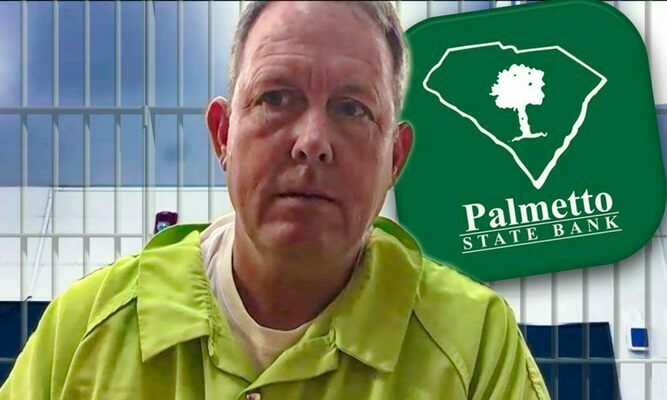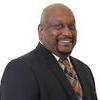Russell Laffitte Painted as Decision Maker in Murdaugh Financial Crimes
 Russell Laffitte
Russell Laffitte
Jeanne Seckinger said she never felt she had a reason to distrust the decisions Russell Laffitte made about the finances her law firm deposited on behalf of their clients with Laffitte at Palmetto State Bank. She said not just because the Hampton law firm where she was CFO, now known as the Parker Law Group, had a strong relationship with Laffitte, who was the bank’s CEO, but also because Laffitte was married to her husband’s sister. “He was my brother-in-law,” Seckinger said. “I trusted him implicitly.”
But that trust eroded as she learned one of the firm’s partners, Alex Murdaugh, was inappropriately taking money out of client accounts at Laffitte’s bank. Many of those transactions were signed off on personally by her brother-in-law. ”I still trust Russell, I love him very much, but I have seen things that cause me concern,” said Seckinger, the prosecution’s second witness on the second day of a trial that may last two weeks.
Laffitte is charged with federal wire fraud and bank fraud for his role in allegedly helping Murdaugh plunder the accounts of money in conservatorships under the banker’s control. Murdaugh is an unindicted conspirator in the case. She testified that Murdaugh had a “chaotic” style that made it difficult to pin him down on details, especially when she tried to question him about money matters. “Nine times out of 10 (times) his phone would ring, and then you would see him a week later,” she said.
She testified that when she confronted Murdaugh on June 7, 2021, about missing fees from a case, that meeting came to an abrupt end when Murdaugh received a call about his father being moved into hospice. Later that night, Murdaugh’s wife and son were found murdered at the family’s Colleton County rural estate, and Seckinger let the matter of the missing money drop. But she said she had cause to be concerned about Murdaugh and money. “At this point, we’re concerned because we know about the boat accident,” Seckinger said, referring to the 2019 boat accident in which Mallory Beach was killed, and for which Murdaugh’s now-deceased son, Paul, faced charges of boating under the influence.
Seckinger testified that although she and members of the firm worried that Murdaugh might be trying to squirrel money away because of the boat crash, she never suspected he might be a thief who had stolen millions from clients. Murdaugh now faces state charges he stole some $8 million from clients, law partners and friends. But at that time, in 2021, Murdaugh was a defendant in a wrongful death lawsuit aimed at holding him and others responsible for Beach’s drowning death. “We don’t want to be any part of delaying fees, or trying to structure fees that could be collected later in life,” she said. “I didn’t want him to hide money based on this boat accident.”
Firm CFO Details
Laffitte, Murdaugh’s
Alleged Schemes
In guiding Seckinger’s testimony Wednesday at the trial’s second day, the federal prosecution painted a picture that Murdaugh’s chaos, financially, was often funneled through Palmetto State Bank CEO Laffitte, who often handled financial requests from Murdaugh to take money out of the accounts of clients with settlements managed by Laffitte himself, acting as a conservator, or trusted manager of a pool of funds. Records introduced to the jury Wednesday showed much of the money in conservatorships was diverted to personal uses by Murdaugh and Laffitte. Much of the money was also paid back, sometimes using money from other conservatorships under Laffitte’s control, according to the prosecution. In one email presented at trial Wednesday, Murdaugh makes a suggestion to Laffitte about covering a needed deposit.
“Make a loan from Hannah and I will pay it as we discussed,” Murdaugh said, an apparent reference to Hannah Plyler, an underage crash victim with money in a sizable conservatorship managed by Laffitte. Laffitte later emailed back, “I transferred 75K this morning.” In response to another email from Laffitte, Murdaugh responded, “I will be in to see you. How long until Hannah turns 18?” Once she turned 18, the money in the conservatorship would no longer be managed by Laffitte and subject to being tapped by Murdaugh.
If Laffitte had alerted the law firm to the money being taken out of client accounts, it could have taken action sooner to learn what was going on, Seckinger said. In cross examining Seckinger, Laffitte’s defense team tried to present Laffitte as a victim himself, a person just as susceptible to Murdaugh’s manipulation as everyone else in his life. Defense attorney Bart Daniel pointed out that many of the clients who later learned their accounts had been raided spoke of Murdaugh as a friend who cared about them personally.
“They trusted him, just like you trusted him, and just like people at Palmetto State Bank and Russell Laffitte trusted him,” Daniel said. Daniel asked Seckinger whether Murdaugh had certain qualities, such as “the gift of gab, ... a big personality ... and a god-given gift of using people as pawns.” “I agree,” Seckinger said. When Daniel asked whether Murdaugh “created an illusion, an illusion of chaos,” Seckinger said she agreed.
Seckinger also testified that Murdaugh had an extraordinary memory and “was able to keep all his lies straight.” In addition to Murdaugh, Seckinger testified that Chris Wilson, a lawyer and longtime friend of Murdaugh’s with a different firm, lied about a major fee of nearly $800,000 that Murdaugh was supposed to turn over to the firm in the spring of 2021.
All partners in the firm were supposed to turn over money won in lawsuits to the firm’s client trust account, where it would be used to pay bills and, every December, distributed to the partners. The more money each partner had brought in during the year from settlements and verdicts, the more money that partner got in December.
Please support The Coastal Chronicles by subscribing today!
You may also like:







